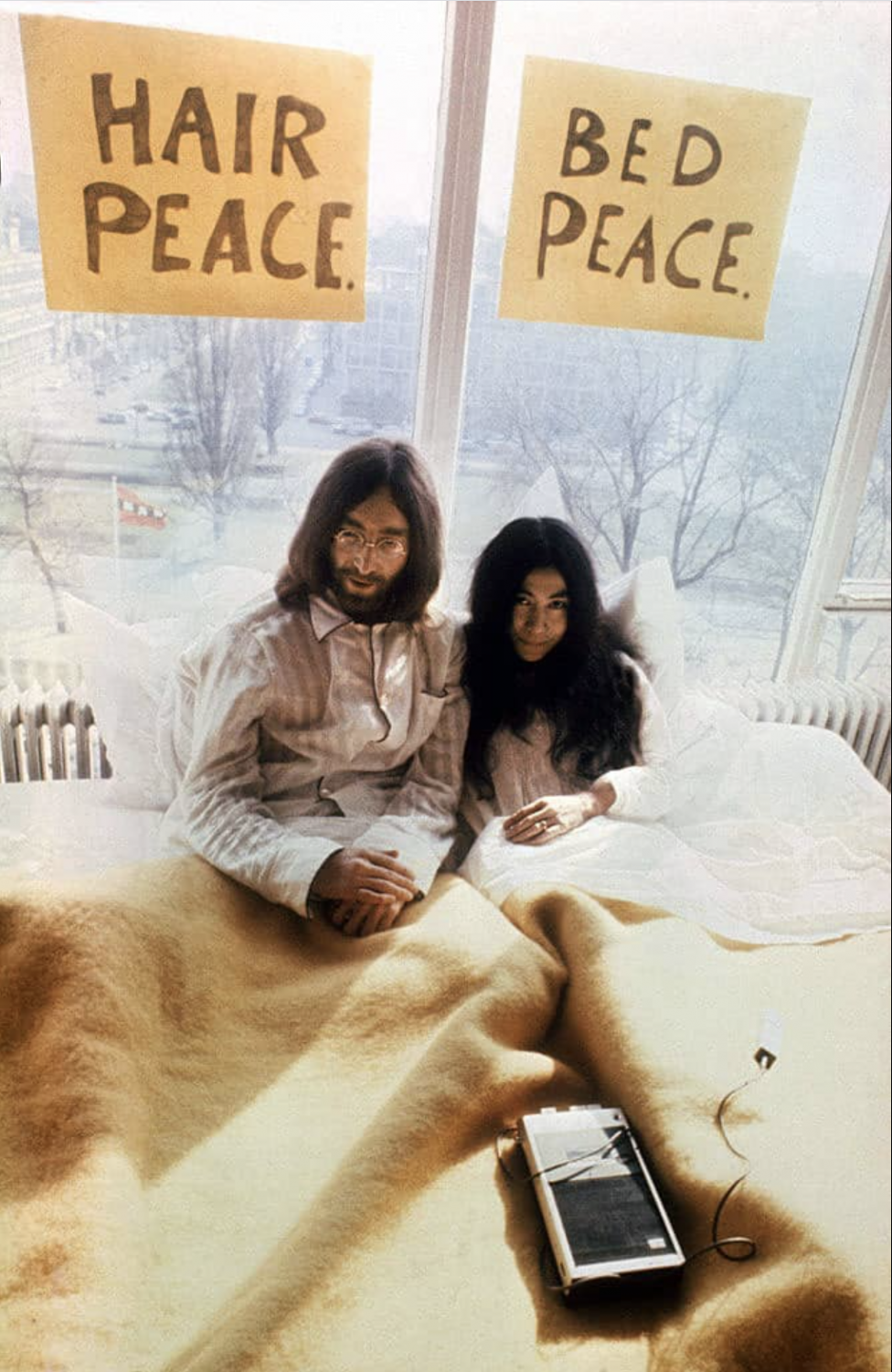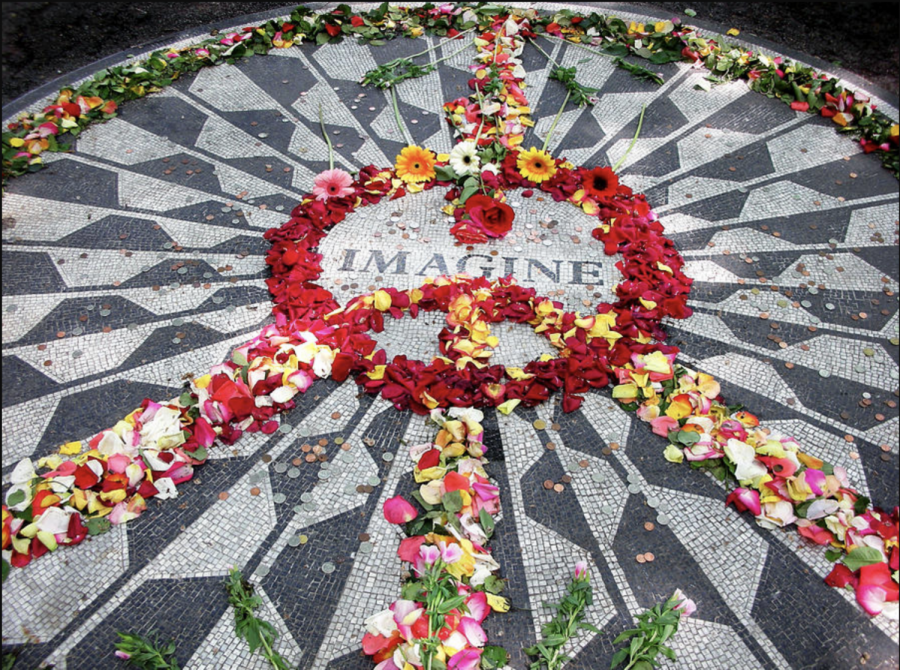Imagine: The Legacy of John Lennon
January 19, 2021
Two figures, clad in white, sit amongst flowers and protest signs on a hotel bed in Amsterdam, daring the world to give peace the slightest chance. It is March 25th, 1969, the first of two “Bed-Ins for Peace,” which was a series of protests against the Vietnam War and the Nigerian Civil War. John Lennon, the famed musician of The Beatles and Yoko Ono, the multimedia artist extraordinaire, invited everyone–from the press to the public– into their hotel room. This was how they spent their highly publicized honeymoon, bringing attention to something greater than themselves. Peace. Something we are still fighting for, over 50 years later.
Thirty reporters, all awkwardly crouched around the bed of the cramped hotel room, chaotically try to ask the musicians questions, unsuccessfully trying to test them on their motives. Lennon and Yoko sit poised and collected, even angelically, as the windows behind them smother their bodies with light. Someone asks what he is trying to achieve by sitting in bed, and Lennon replies nonchalantly, “Just giving peace a chance”. This casual interaction inspired a revolutionary song of the same name.
“Give Peace A Chance” was recorded at the second Bed-Ins for Peace in the Queen Elizabeth Hotel of Montreal, Canada, and became an anthem of the 1960s counterculture movement for its simple yet profound message. Millions of protestors took to the streets of Washington, D.C. months after the song was released, demanding that President Nixon “give peace a chance” and pull out of the Vietnam War. Through their music and activism, John Lennon and Yoko Ono sparked a light of hope in the dark, adding fuel to the burning fire of the anti-war movement.

Lennon was known for using his art to combat violence. The focus of Lennon’s masterpiece, “Imagine,” is unique to other songs he wrote during the era of the Vietnam protests. Rather than directly stating Lennon’s political perspective, it focuses on a more general utopia of peace that has never been attained. Instead of trying to persuade the listeners to support the protests, it implored them to dream of a better future full of peace. The lyrics ask listeners to “imagine there’s no heaven,” with “no hell below us,” and to dream of “people living for today,” rather than dwelling on what will happen once their lives are over. Lennon causes wheels to turn within his audience, making them wonder what it would be like to live in a world without countries and religions with “nothing to kill or die for.” He begs us to imagine a reality without possessions and “no need for greed or hunger” — a world where there’s “a brotherhood of man.” These ideas may seem completely absurd, and even Lennon acknowledges that they may appear to be too radical with the lyrics, “you may say I’m a dreamer.” However, the purpose of the song is to simply inspire listeners to dream and have an imagination — something that’s vital to have during difficult times.
The majority of the public had an extraordinarily positive reaction to “Imagine.” In fact, Jimmy Carter even claimed, “. . . in many countries around the world . . . you hear John Lennon’s song ‘Imagine’ used almost equally with national anthems.” However, just like with any other somewhat controversial piece of writing put out into the world, there were those who disagreed with Lennon’s lyrics. Several religious groups including the World Church wanted to change the lyrics from “no religion” to “one religion,” but Lennon argued that changing them would defeat the purpose of the song. Critics also took issue with the seemingly anarchist idea of having no countries and no possessions. It was this opposition to Lennon’s ideas of unflagging love and his radical belief that there could be peace on Earth, which led to his assassination on December 8th, 1980.
Now, 40 years after his death, John Lennon’s message of hope through darkness is more relevant than ever. Whether combating through the traumas of the Vietnam War, systemic racism, COVID-19, white supremacy, brutality at the border, or dangerous leaders, Lennon’s words are invariable. As we enter this new year, imagine a better world. A kinder world. A world of peace and unity. Imagine it, and together, we can build this future.
